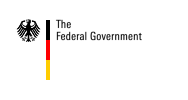- Cologne 1999
- Okinawa 2000
- Genoa 2001
- Kananaskis 2002
- Evian 2003
- Sea Island 2004
- Gleneagles 2005
- German contribution
Cologne 1999
The G8 committed itself to debt relief for heavily indebted developing countries. The Cologne Debt Initiative strengthened the Heavily Indebted Poor Countries (HIPC) framework. For the first time, debts owed to the International Monetary Fund and the World Bank were also cancelled.
The Initiative was designed to provide deeper, broader and faster debt relief, and to link this more closely to the fight against poverty The G8 committed itself to work for debt relief of up to 90 per cent. The total volume of debt was to be halved by 2015.
Top
Okinawa 2000
Nine countries (Benin, Bolivia, Burkina Faso, Honduras, Mauretania, Mozambique, Senegal, Tanzania and Uganda) have qualified for access to the HIPC initiative and are benefiting from the first debt relief.
The total extent of debt relief in the context of the HIPC initiative for these countries nominally amounts to more than 15 billion US dollars.
Top
Genoa 2001
The heads of state and government of the G8 are again able to announce a success in the implementation of the Cologne initiative. In the meantime 23 countries in all are participating in the debt relief programme.
Top
Kananaskis 2002
26 countries have qualified for the programme, which means that debts of almost 40 billion US dollars (almost 2/3 of the total amount) can be waived.
In order to ensure that this initiative can continue to operate, the G8 lobby the IMF and the World Bank for further cooperation with regional development organisations.
Top
Evian 2003
By 2003 a total of around 60 billion US dollars of debt has been waived for the qualified countries. The heads of state and government have continued to call for private creditors to waive their debts too.
Top
Sea Island 2004
The G8 encourage international financial organisations and creditors to extend the HIPC initiative to 31st December 2006. This will enable the necessary funding to be guaranteed so that the initiative can be concluded by 2015.
Top
Gleneagles 2005
The G8's initiative and its agreement to fund a Multilateral Debt Relief Initiative led to further debt cancellations. The following year, the International Monetary Fund, the International Development Association (part of the World Bank Group) and the African Development Fund decided to cancel all the existing debt of Heavily Indebted Poor Countries that had successfully completed the HIPC Initiative process.
Top
German contribution
Around 40 billion US dollars of debt has been waived for the countries which have qualified up to now for the Multilateral Debt Relief Initiative. The Federal Republic is going to raise around 3.9 billion US dollars of financing to replace the debt servicing which is consequently no longer flowing back to the World Bank and the African Development Fund.
In terms of the HIPC initiative: a total of around 70 billion US dollars of debt has been waived. Germany is going to waive debts of 6.5 billion euros in total. By the end of 2005, 2.7 billion had already been converted into debt relief. When all the relief which has been announced has been concluded, almost all the HIPC countries will be free of debt towards Germany.
By the end of 2002 Germany had paid a total of 254.7 million euros directly or via the European Union into the World Bank’s HIPC trust fund.
